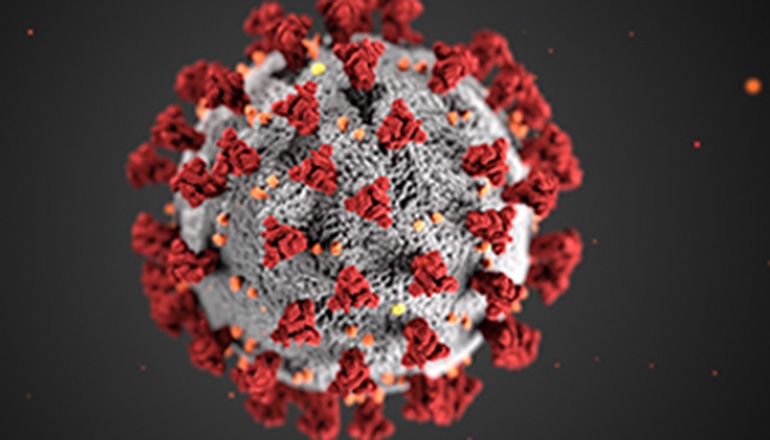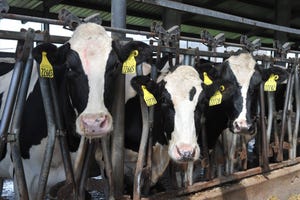Science confirms coronavirus not transmitted by food
China requiring testing of frozen meat and poultry imports.

China’s major port city of Shenzhen announced on Monday that it is requiring additional tests on frozen meat and poultry for traces of the virus that causes COVID-19. However, a scientific review of literature finds that SARS-CoV-2 cannot be spread by foodborne routes.
From April to August 2020, the American Frozen Food Institute (AFFI), in partnership with North Carolina State University (NCSU) researchers, conducted a scientific literature review to understand the nature of survival and persistence of SARS-CoV-2, the virus that causes COVID-19, in foods and on food contact surfaces and food packaging materials and the potential for foodborne transmission.
Their work confirms that, although there is a slight chance for virus contamination, there is no evidence for the spread of SARS-CoV-2 through consumption of food or in association with food packaging, and there have been no known cases of foodborne COVID-19. This conclusion substantiates similar statements made by the U.S. Centers for Disease Control & Prevention, the U.S. Food & Drug Administration, the U.S. Department of Agriculture and the World Health Organization.
“There is just no scientific evidence in the currently available literature to support that SARS-CoV-2 can be spread by foodborne routes,” AFFI senior vice president of scientific affairs Dr. Sanjay Gummalla said.
Shenzhen’s city government said it has prepared a central warehouse where all imported food that has cleared customs will need to undergo further testing and exterior sterilization prior to passing into commerce. The warehouse began operations on Aug. 18. Certificates will be issued to show that product has passed the warehouse inspection.
The new testing requirements follow a reported positive COVID-19 test on the surface of a chicken wing sample imported from Brazil during the previous week. That test prompted Chinese health authorities to issue official warnings that consumers should be cautious when buying imported frozen food due to the risk of exposure to COVID-19.
Dr. Lee-Ann Jaykus, William Neal Reynolds distinguished professor in the NCSU department of food, bioprocessing and nutrition and former NoroCORE scientific director, noted, “External contamination of food with the virus can only occur by direct exposure to relevant secretions from infected individuals or indirectly were the food to come into contact with a surface or hands that were contaminated with SARS-CoV-2.”
The scientific literature confirms that surface contamination can occur and that SARS-CoV-2 is unlikely to be inactivated by freezing. The virus can persist at refrigeration and ambient temperatures for a matter of hours to days, depending upon a variety of environmental conditions and the state of the virus (aerosol versus surface deposited), among other factors.
However, Gummalla reiterated, “It is highly unlikely that the virus could be transmitted from consumption of, or contact with, frozen foods. For that to happen, a person would need to consume food contaminated with viral particles, then the virus would have to reach the respiratory tract and infection would result only if an amount equal to the infective dose happened to come into contact with the right cells to initiate virus infection. Alternatively, a person would have to handle contaminated food with their hands, then transfer the virus by touching the nasal region or eyes and, again, infection would result only if a sufficient amount of virus gained entry to the individual’s respiratory tract. Frankly, all the stars would have to align for such a sequence of events to occur.”
Jaykus explained, “The overwhelmingly higher and most significant mode of disease transmission is through exchange or release of respiratory droplets laden with the virus, with transmission facilitated by close contact to an infected individual actively shedding the virus. Expending resources on unsubstantiated foodborne routes threatens our efforts to focus on control strategies we know work against respiratory spread.”
Relative to recent reports of SARS-CoV-2 detection in some high-protein foods or on food packaging materials, it is important to note that there are not yet any scientifically vetted protocols available for detection of SARS-CoV-2 in these sample types. This is especially important since the methods used are unlikely to be able to discriminate between virus that can cause infection versus remnants of infectious virus.
“While there has been media reporting on samples testing positive, it’s not clear exactly what the methods are or if the decisions to implicate foods are based on the best available science,” said Dr. Ben Chapman, NCSU professor and food safety extension specialist.
Jaykus concluded, “We are currently relying on unsubstantiated reporting to implicate foods in SARS-CoV-2 transmission. The international scientific community must come together to assure that any future implications are based on sound science that is universally accepted for making risk management decisions.”
About the Author(s)
You May Also Like





